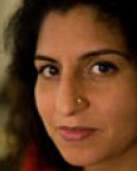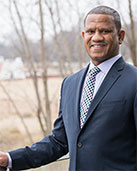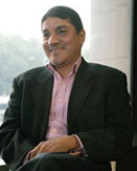Associate professor of political science
Tillery's research and teaching interests are in the fields of American politics and political theory. His research focuses on American political development, racial and ethnic politics and media and politics.
"The fact that President Trump and so many of his associates have recently contracted COVID-19 should not surprise anyone. After all, we saw other world leaders – most notably Boris Johnson of the United Kingdom and Jair Bolsonaro of Brazil, who scoffed at the recommendations of the scientific community – contract the virus earlier in the pandemic.
"We also should recall that one of Mr. Trump’s most ardent supporters, Herman Cain, who had himself run for the Republican nomination for president in 2012, died of COVID-19 in the wake of attending Mr. Trump’s rally in Tulsa, Oklahoma. Indeed, given his egregious flouting of the recommendations of his own task force, the real surprise is that the White House did not become a hot zone for infections much earlier in the pandemic.
"What we now know is that Mr. Trump has received the most cutting edge medical interventions to prevent him from having too severe a course with the disease. From a strategic standpoint, this makes perfect sense. We absolutely need the American president to be given aggressive treatment to preserve our chain of command and shore up our national security. The big question is: how will Mr. Trump behave when he emerges from Walter Reed Hospital?
"Based on my observations of him over the past four years, I predict that he will not course correct in terms of his personal behavior nor his management of the virus. It will be too close to the election to change his message that things are getting better and that we should rush full steam ahead to fully reopen the country.
"This messaging likely will land flat on a public that has seen 200,000 of their fellow citizens die from the virus. Plus, the fact that his own health will have been preserved through experimental medicine while the average American has no hope of receiving such interventions if they were to fall sick will create further distance between him and a restive electorate that looks eager to oust him from office."




